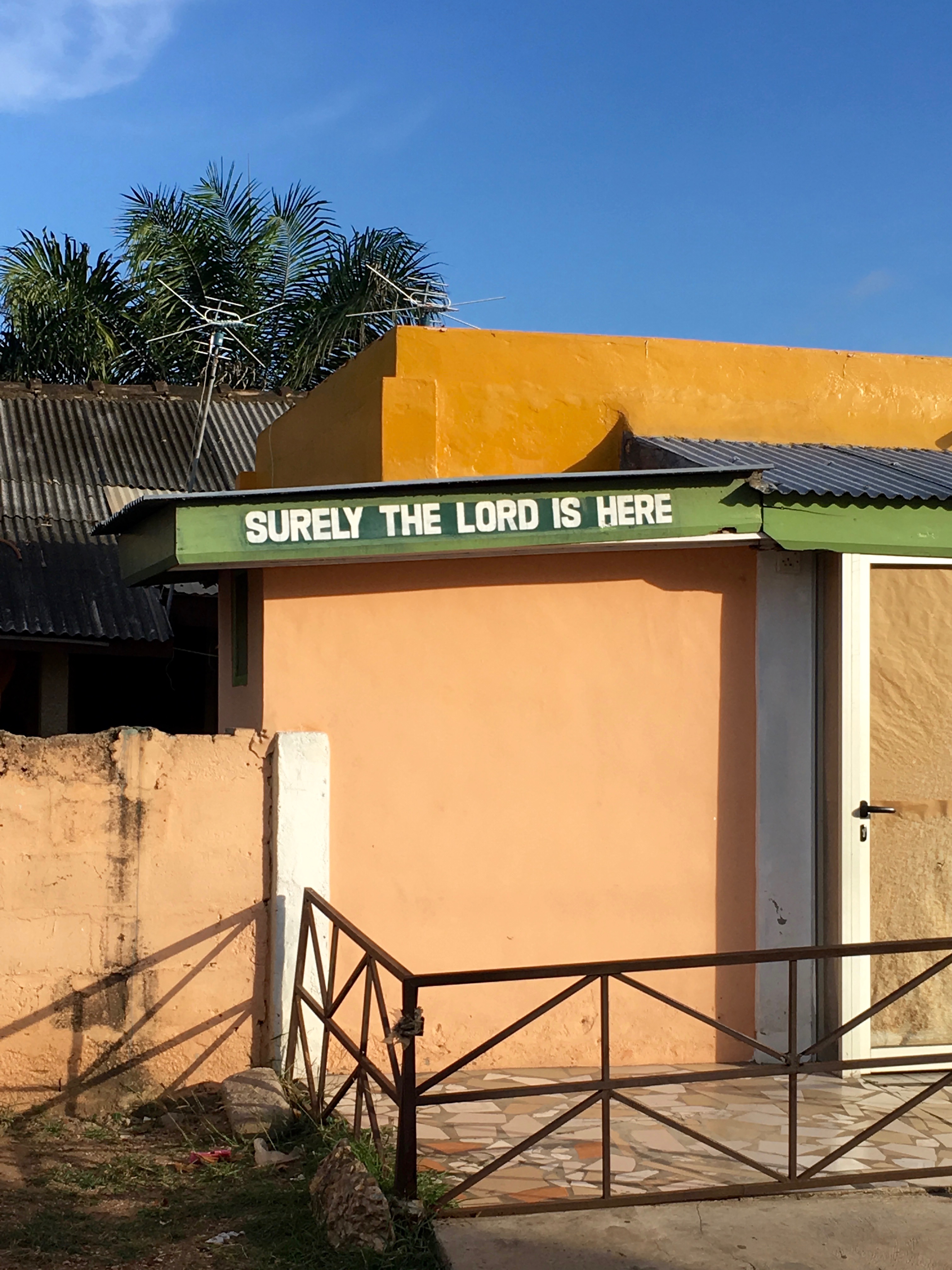
Religion in Ghanaian Public Life
By Gabriella Borter
[divider]
[dropcap]I[/dropcap]n the U.S., you walk into a fast food restaurant and order a #2 burger with a side of fries. In Accra, you might walk up to a food cart and ask for the Psalm 6 chicken special with a side of jollof rice. And if you look up from the menu, you’ll soon notice that the streets of the city are crowded with religious catchphrases. They appear on store awnings, billboards, poster advertisements and cars. If you didn’t pack enough lightweight clothing for the 90 degree humidity (like me), you’ll probably end up at a store like “God Is Great Unisex Boutique.” Is your power out? Call “Fear God Electricity Services.” Want a haircut? Try going to “Blood of Jesus Hair Care.” And if you take a taxi to get there, chances are that one of its bumper stickers will assure you that you are blessed and “Jesus Loves You.”
While visiting Americans may find it amusing that businesses in Ghana evoke God as a marketing strategy, Ghanaians take religion very seriously—and not just in the commercial sphere. 95% of Ghanaians identify as religious, according to WIN/Gallup International polls. Around 65% of those people are Christian, and around 25% are Muslim. The remaining percentage is comprised of Buddhists, Rastafarians and Hindus, among others. On Sunday mornings, you can hear the exuberant belting of hymns coming from churches all over the city. On other days of the week too, the Muslim “Fajr” prayer echoes from city mosques before dawn breaks, to start the day on a holy note.
There is no official state religion in Ghana, but there is still a strong cultural expectation that citizens will be religious. Which religion or denomination they choose to practice is flexible. Ghana remains a nation of high religious tolerance, with various religious groups (including different Christian denominations) living and worshipping side by side around the country. Mosques and churches of all different colors stand beside more mundane buildings of worship like “Jesus is Evergreen” supermarket and “God’s Grace Autoparts,” creating an urban cultural landscape that celebrates reverence to all degrees of formality.









[hr]
Gabriella Borter ’18 is an English Major in Morse College. Contact her at gabriella.borter@yale.edu.